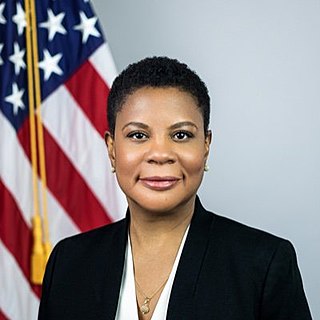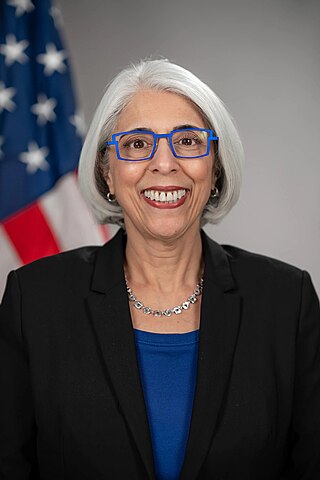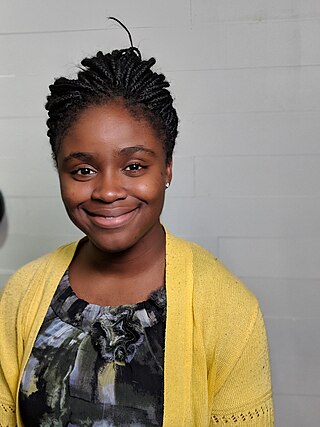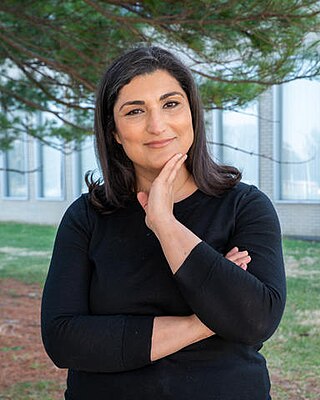
Augusta Ada King, Countess of Lovelace was an English mathematician and writer, chiefly known for her work on Charles Babbage's proposed mechanical general-purpose computer, the Analytical Engine. She was the first to recognise that the machine had applications beyond pure calculation.

Subhash Kak is an Indian-American computer scientist and historical revisionist. He is the Regents Professor of Computer Science Department at Oklahoma State University–Stillwater, an honorary visiting professor of engineering at Jawaharlal Nehru University, and a member of the Indian Prime Minister's Science, Technology and Innovation Advisory Council (PM-STIAC).
Biometrics are body measurements and calculations related to human characteristics. Biometric authentication is used in computer science as a form of identification and access control. It is also used to identify individuals in groups that are under surveillance.

Nick Bostrom is a philosopher known for his work on existential risk, the anthropic principle, human enhancement ethics, whole brain emulation, superintelligence risks, and the reversal test. He was the founding director of the now dissolved Future of Humanity Institute at the University of Oxford and is now Principal Researcher at the Macrostrategy Research Initiative.

A facial recognition system is a technology potentially capable of matching a human face from a digital image or a video frame against a database of faces. Such a system is typically employed to authenticate users through ID verification services, and works by pinpointing and measuring facial features from a given image.
Bart Selman is a Dutch-American professor of computer science at Cornell University. He is also co-founder and principal investigator of the Center for Human-Compatible Artificial Intelligence (CHAI) at the University of California, Berkeley, led by Stuart J. Russell, and co-chair of the Computing Community Consortium's 20-year roadmap for AI research.

Alondra Nelson is an American academic, policy advisor, non-profit administrator, and writer. She is the Harold F. Linder chair and professor in the School of Social Science at the Institute for Advanced Study, an independent research center in Princeton, New Jersey. From 2021 to 2023, Nelson was deputy assistant to President Joe Biden and principal deputy director for science and society of the White House Office of Science and Technology Policy (OSTP), where she performed the duties of the director from February to October 2022. She was the first African American and first woman of color to lead OSTP. Prior to her role in the Biden Administration, she served for four years as president and CEO of the Social Science Research Council, an independent, nonpartisan international nonprofit organization. Nelson was previously professor of sociology at Columbia University, where she served as the inaugural Dean of Social Science, as well as director of the Institute for Research on Women and Gender. She began her academic career on the faculty of Yale University.

Marta Zofia Kwiatkowska is a Polish theoretical computer scientist based in the United Kingdom.

Arati Prabhakar is an American engineer and public official. Since October 3, 2022, she has served as the 12th director of the White House Office of Science and Technology Policy and Science Advisor to the President.

Deepak B. Phatak is an Indian computer scientist and academic, and a recipient of the Padma Shri Award for his contribution in science and technology in 2013. He is known for his notable work for upgrading Aakash, advertised by its manufacturer as the 'world's cheapest tablet'. In 2009, he was ranked one of the 50 most powerful people in India.
Mary Josephine O'Kane, AC an Australian scientist and engineer, is the Chair of the Independent Planning Commission of New South Wales. She is also a company director and Executive Chairman of O’Kane Associates, a Sydney-based consulting practice specialising in government reviews and research and innovation advice to governments in Europe, Asia and Australasia.
Louise Marie Ryan is an Australian biostatistician, a distinguished professor of statistics in the School of Mathematical Sciences at the University of Technology Sydney, president-elect of the International Biometric Society, and an editor-in-chief of the journal Statistics in Medicine. She is known for her work applying statistics to cancer and risk assessment in environmental health.

Joy Adowaa Buolamwini is a Canadian-American computer scientist and digital activist formerly based at the MIT Media Lab. She founded the Algorithmic Justice League (AJL), an organization that works to challenge bias in decision-making software, using art, advocacy, and research to highlight the social implications and harms of artificial intelligence (AI).

Kathy Pham is a Vietnamese American computer scientist and product management executive. She has held roles in leadership, engineering, product management, and data science at Google, IBM, the Georgia Tech Research Institute, Harris Healthcare, and served as a founding product and engineering member of the United States Digital Service (USDS) in the Executive Office of the President of the United States at The White House. Pham was the Deputy Chief Technology Officer for Product and Engineering at the Federal Trade Commission, and the inaugural Executive Director of the National AI Advisory Committee.
The AI Now Institute is an American research institute studying the social implications of artificial intelligence and policy research that addresses the concentration of power in the tech industry. AI Now has partnered with organizations such as the Distributed AI Research Institute (DAIR), Data & Society, Ada Lovelace Institute, New York University Tandon School of Engineering, New York University Center for Data Science, Partnership on AI, and the ACLU. AI Now has produced annual reports that examine the social implications of artificial intelligence. In 2021-2, AI Now’s leadership served as a Senior Advisors on AI to Chair Lina Khan at the Federal Trade Commission. Its executive director is Amba Kak.

Terah Lyons is known for her work in the field of artificial intelligence and technology policy. Lyons was the executive director of the Partnership on AI and was a policy advisor to the United States Chief Technology Officer Megan Smith in President Barack Obama's Office of Science and Technology Policy.

Hetan Shah is the chief executive of the British Academy and the chair of Our World in Data. In 2024 he was appointed by the UK Parliament to the Board of the National Audit Office, the UK's spending watchdog. He is a visiting professor at King's College London and a Fellow of Birkbeck, University of London. He served as executive director of the Royal Statistical Society from 2011 to 2019.

Rashida Richardson is a visiting scholar at Rutgers Law School and the Rutgers Institute for Information Policy and the Law and an attorney advisor to the Federal Trade Commission. She is also an assistant professor of law and political science at the Northeastern University School of Law and the Northeastern University Department of Political Science in the College of Social Sciences and Humanities.

Inioluwa Deborah Raji is a Nigerian-Canadian computer scientist and activist who works on algorithmic bias, AI accountability, and algorithmic auditing. Raji has previously worked with Joy Buolamwini, Timnit Gebru, and the Algorithmic Justice League on researching gender and racial bias in facial recognition technology. She has also worked with Google’s Ethical AI team and been a research fellow at the Partnership on AI and AI Now Institute at New York University working on how to operationalize ethical considerations in machine learning engineering practice. A current Mozilla fellow, she has been recognized by MIT Technology Review and Forbes as one of the world's top young innovators.

Elham Tabassi is an engineer and government leader. She was listed on the inaugural TIME100 Most Influential People in AI. Tabassi led the creation of the United States Artificial Intelligence Risk Management Framework, adopted by both industry and government. Tabassi was selected to serve on the National Artificial Intelligence (AI) Research Resource Task Force. Tabassi began her career in government at the National Institute of Standards and Technology, pioneering various machine learning and computer vision projects with applications in biometrics evaluation and standards, included in over twenty five publications. Her research has been deployed by the FBI and Department of Homeland Security.















